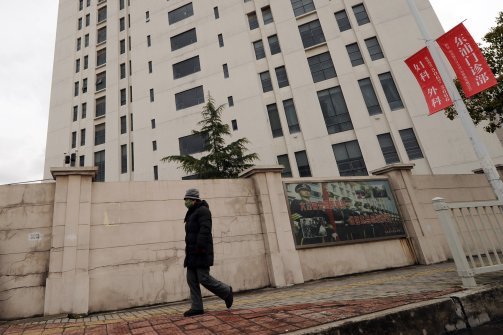
The White House is expected to announce a raft of anti-hacking measures a day after a report linked China’s military to prolific cyber-theft.
Possible actions include fines or other trade enforcements against China or any other country found guilty of hacking.
The US says it has repeatedly raised concerns with China about cyber-attacks and stolen trade data.
China’s military says the report by a US-based security company is flawed, lacking “technical proof”.
Executives from GE and American Superconductor, both of which do business in China, are expected to attend as the White House rolls out its strategy.
The announcement at 15:00 EST will be attended by US Attorney General Eric Holder.
“The strategy that we are releasing today co-ordinates and improves US government efforts to protect the innovation that drives the American economy and supports jobs in the United States,” a White House official said.
“This strategy is not focused on any one country, nor is it focused on cyber-security exclusively, though cyber does play an important role in the strategy.”
Tuesday’s detailed report by Mandiant identified a Shanghai high-rise used by China’s military as the probable home of hackers to whom it attributed multiple attacks on US companies.
The group, labelled in the report as APT1, was staffed by hundreds of proficient English speakers, Mandiant said.
APT1 had hacked into 141 companies across 20 industries, stealing hundreds of terabytes of information including blueprints, business plans, pricing documents, user credentials, emails and contact lists.

China’s government has long been suspected of a role in cyber-hacking.
But the issue has become more high-profile in recent months following widely reported hacks into media outlets including the New York Times.
That incident followed the newspaper’s report on the wealth of outgoing Premier Wen Jiabao’s relatives.
On Tuesday, state department spokeswoman Victoria Nuland said that the issue had come up “in virtually every meeting we have with Chinese officials”.
Estimated losses from cyber-espionage and theft of trade secrets totalled more than $300 billion in 2012, according to Representative Dutch Ruppersberger, the top Democrat on the House Intelligence Committee.
The Mandiant report argued that it was “highly unlikely that the Chinese government is unaware of an attack group that operates from the Pudong New Area of Shanghai”, citing the country’s rigorous monitoring of internet use.
But China has flatly denied any connection with the activity outlined in Mandiant’s report.
A Chinese ministry statement, posted on its website, said that many hacking attacks were carried out using hijacked IP addresses.
It also suggested that the “everyday gathering” of online information was being wrongly characterized as spying.
And on Wednesday, Chinese foreign minister Hong Lei said China itself had been the victim of attacks, citing a 2012 report from the country’s Ministry of Information Technology and Industry.
“Among the above attacks, those from the US numbered the most,” he said at a news conference.
Cyber-security experts told the Associated Press that US intelligence agencies routinely spy on other countries, but do not conduct similar attacks or steal data from Chinese companies.
[youtube 3K7lJ9pOFJU]